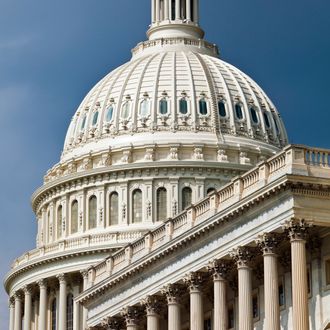
The dozen Pacific Rim countries working out the Trans-Pacific Partnership trade deal have finalized an agreement. The trade accord has been in the works for nearly eight years and would affect 40 percent of the world’s economy if ratified.
However, the deal could still fail at this point, given the many people who don’t like it very much in U.S. politics. Environmentalists, labor unions, and many members of President Obama’s party have thus far remained unconvinced that this would be a good idea just because it would do wonders for the president’s legacy. Many worry that the deal could outsource more jobs in the U.S. or that it could hurt the environment. A few conservatives with farming or manufacturing constituents are worried about competition. The Obama administration has worked to assuage the fears of critics, which has been hard since the deal’s contents have remained a bit unknown: Few people have actually seen the nuts and bolts of the deal. The text of the accord, 30 chapters long, has not yet been released but likely will be in the near future now that the last few disagreements on the bill — involving pharmaceuticals, cars, and cheese — have now been addressed.
Obama has tried to sell the deal as a “pivot to Asia” — one that will help counteract China’s growing economic power.
The countries involved in the trade deal are Australia, Brunei, Canada, Chile, Japan, Malaysia, Mexico, New Zealand, Peru, Singapore, Vietnam, and, of course, the United States.
The next step for the deal is to stop by Congress, where it will likely be debated for months. Congress gave Obama “fast-track authority” on the deal, which means it only gets an up-or-down vote, and legislators have no opportunity to offer amendments. A few leaders taking part in the trade negotiations were hesitant to finish the bill until they had been reassured that Congress would not try to rewrite the whole thing later on.
Senator Elizabeth Warren has been one of the TPP’s biggest opponents — many Republican leaders have, on the other hand, agreed with Obama on this issue. Many of the presidential candidates from both parties have remained skeptical about the deal — especially Bernie Sanders.
It’s not quite clear where Hillary Clinton stands on the TPP. In June, she said, “I will judge what’s in the final agreement, but I hope that it can be made better.” Jeb Bush has said he supports the deal, while other Republicans have come out against it or have been less concrete on where their final support stands.
According to the Washington Post, the congressional vote on the deal will likely take place at the beginning of next year — right before the primaries start.





























